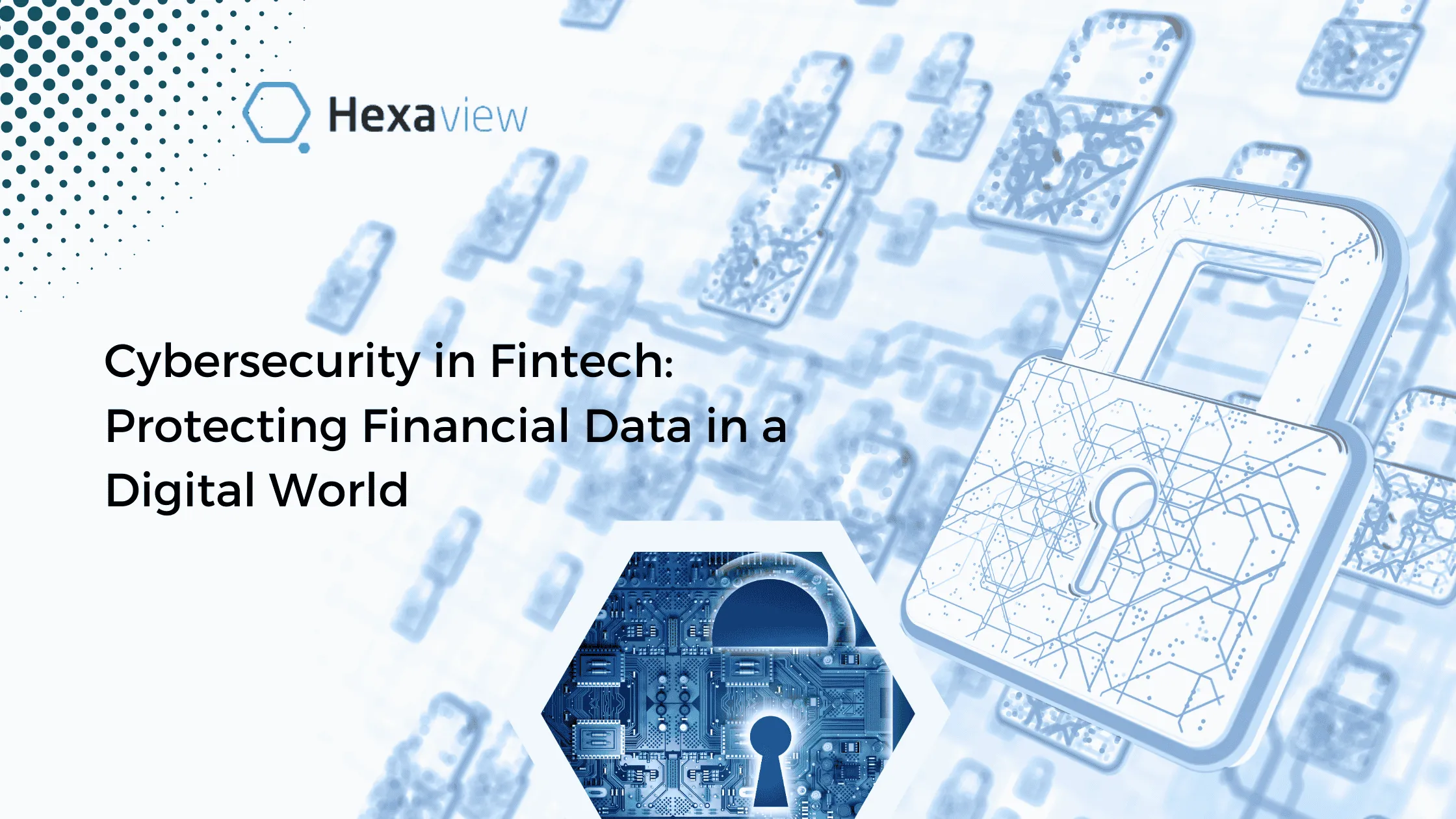Today, we are living in a fast-paced world of technology and Finance, with the growing trend of financial technology. Fintech has revolutionized the way we handle and conduct transactions in the past few days. Companies have now started leveraging the potential of cutting-edge technology that provides a wide range of services, from mobile payment and online banking to Robo Advisor and peer-to-peer lending. Undoubtedly, innovation has made our lives convenient, but it has also resulted in growing challenges, especially when it comes to security. This is when fintech data security became a major concern for organizations.
In this guide, we will mainly take a look into the importance of fintech cyber security, along with exploring the critical strategies, best practices, and tools that become helpful to protect sensitive data from the evolving threats in the digital landscape.
The revolution of fintech
The Fintech industry has totally transformed the way we manage our finances. From digital wallets and mobile banking to peer-to-peer lending platforms, there are several financial services available at our fingertips. With the revolution came convenience, cost-effectiveness, and accessibility, which require advanced data security financial services to ensure top-notch security.
Importance of FinTech cybersecurity
There is no denying the fact that convenience has become a norm, but convenience can sometimes lead to bigger issues. Since these companies require handling huge amounts of sensitive data on a regular basis, they can become a common target for cybercriminals.
These criminals are constantly working to devise new techniques so that they can breach security measures and get unauthorized access to valuable data like personal identification information, bank account details, and credit card numbers.
If a cyber-attack is successful, it can have devastating consequences. It will lead to reputational damage, financial losses, legal liabilities, and compromising customers' financial security. Hence, fintech data security is not just an option but a necessity.
In this guide, we will mainly discuss the need for data security in financial services and the latest trends in fin tech.
The Huge Fintech Ecosystem:
Before diving into fintech cyber security, it is important to have a proper understanding of the fintech ecosystem. It comprises a wide variety of financial technology companies. Every area faces unique operational challenges that require data privacy and security. Here are some of the major categories in FinTech.
- Mobile apps and digital banking – Mobile apps and digital banking are probably some of the most common examples that offer a full range of banking services like savings accounts, checking accounts, and loans using user-friendly mobile interfaces. It offers the convenience of accessing at any time, which makes them attractive along with a target for cyber criminals.
- Peer-to-peer payment apps—Some of the most popular peer-to-peer payment apps, like PayPal, Venmo, and several others, have become popular among users as they allow them to send and receive money quickly. The primary intention of this system is to ensure ease of use, but it needs strict security protocols to prevent fraud, data breaches, and unauthorized access. Hence, financial data security systems are crucial.
- Digital wallets – Digital wallets like Google Pay and Apple Pay clearly store a lot of payment information security for in store and online transactions. However, there is a need for safeguarding against identity, theft and hacking attempts to ensure safety.
- Insurtech – This also involves making use of technology for streamlining and enhancing insurance services. Insurtech solutions clearly face a lot of challenges like managing a huge volume of personal data and the potential for fraud. Choosing data security financial services is essential to protect customer information and make sure to comply with the regulations.
Apart from this, there are several other platforms, such as peer-to-peer lending platforms, Neobank or a fully digital bank, stock trading and investment apps, Robo advisories, etc. All of these advanced technologies offer the convenience users require. However, they require critical financial data security to eradicate the chances of unauthorized theft.
Growing Threats of Cyber Attacks in the Fintech Ecosystem
As fintech has risen, cyber-attacks have also become quite complicated. As more and more people get accustomed to the fintech ecosystem, it is continuously growing, which makes it easier for cybercriminals to look for opportunities. The following are some of the most common types of cyber-attacks faced by several fintech organizations.
- Phishing attacks – Cybercriminals constantly attempt to impersonate legitimate companies in order to deceive users so that they provide sensitive information. This way, cybercriminals can take important login credentials and payment details. Such attacks are typically made through websites and fraudulent emails.
- Distributed Denial of Service attacks—Generally, cyber criminals flood the platforms with a huge amount of traffic, making them unavailable for legitimate customers. Hence, they disrupt services and cause significant financial losses.
- Ransomware and Malware—Ransomware is malicious software that infects the Fintech system. It encrypts data and unlocks payments. Such an attack can result in huge operational shutdowns and data losses, which makes financial data security a must for organizations.
- Insider threats—Insider threats are employees who have access to sensitive data and might sometimes misuse their privileges to steal information or compromise the securities system. It is important for businesses to have strict protocols to manage insider threats and reduce the chances of such attacks.
- Third-party risks – There are several fintech companies that clearly rely on external service providers. Weak finanial cdata security at third-party vendors can expose companies to cyber-attacks through these partners. This is what makes continuous monitoring and due diligence an important part of data security financial services to ensure utmost safety.
Latest trends in fintech cyber security –
FinTech companies are continuously innovating to strengthen their financial data security. There have been several trends that have emerged to keep pace with the evolving threats which include the following.
- Zero trust architecture—As the ecosystem has become more complex, traditional Fintech data security is no longer enough. Zero trust is an architecture that assumes that no user, device, or system can be trusted by default, even when it is within the network. The model emphasizes continuous monitoring, identity verification, and strict access controls.
- Artificial intelligence and machine learning – Artificial intelligence and machine learning clearly play a crucial role in Fintech data security. It provides predictive insight and identifies anomalies in real time. Therefore, it offers organizations the opportunity to take immediate action and reduce the chances of mishaps. Artificial intelligence has the potential to detect fraudulent activities by analyzing huge data sets and machine learning models can identify patterns that can signal potential cyber-attack attacks.
- Blockchain for improved security—The decentralized nature of Blockchain makes it harder for hackers to target a single point of failure. It improves data security in financial services by providing transparency and ensuring the integrity of transactions by reducing fraud.
The fintech ecosystem has continuously advanced. You can check the revolutionary trends and innovations in Fintech that have taken place over the years.
How can an organization prevent data theft?
Protecting financial data is crucial for the FinTech industry. It requires a multi-layered approach to cyber security. Following are some of the essential measures that every Fintech company should consider.
- Encryption – Encryption can be said to be the fundamental component of financial data security. When it comes to data security, encryption is essential as it involves converting data into codes that can only be read with the description key. Encryption can be used to ensure that the data remains encrypted from the sender to the recipient within the platform. Fintech organizations are required to implement strong protocols and regularly update them to maintain FinTech data security.
- Multi-factor authentication – Multifactor authentication is an important part of data security financial services as it adds an additional layer to the security. It would require users to provide two different forms of authentication before it grants access. Some of the most common factors include something that the user knows, like a password, or something that the User has, like a security token or smartphone, and something that users can use for fingerprints or facial recognition. MFA can significantly reduce cyber security risks and unauthorized access, even when a password is compromised.
- Secure API—Most FinTech companies rely heavily on Application Programming Interfaces (API), which help them connect with external systems and services. Fintech organizations must ensure that the API they have chosen is secure. Best practices would include authentication and authorization to ensure that only authorized parties can access platform-specific actions and API.
In addition, fintech organizations can opt for data validation, rate limiting, monitoring and logging, regular security, audits, etc. These measures would ensure that only legit users get access to the platform and reduce the chances of cyber theft.
Conclusion:
As Fintech continues to become a common choice in the landscape, there is a need for robust financial cyber security to ensure reduced data theft. Real-time monitoring, zero trust architecture, multifactor authentication, and other important steps need to be taken by financial organizations to ensure safety.
Companies who are willing to know more about advanced financial data security and want to implement advanced systems can get in touch with Hexaview Technologies. With decades of experience and working with several fintech organizations, they are well aware of the ecosystem and can help you in solving the issues. With them, you can not only get guidance on the best data security financial services but also implement them as per your organization's requirements. You can check their case study to know more about their work and solutions.



%201.svg)
